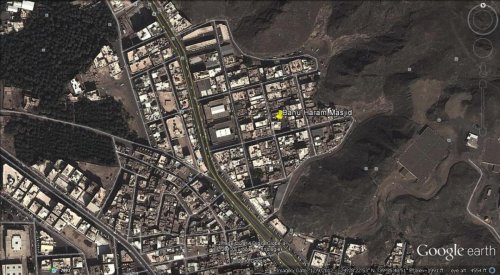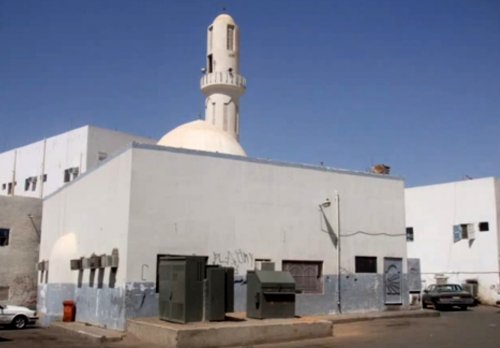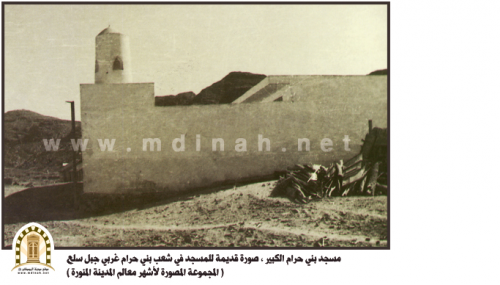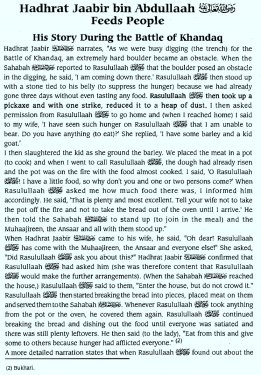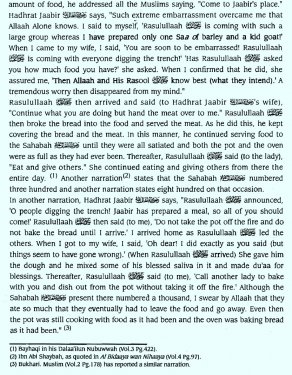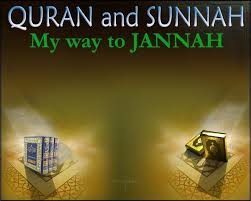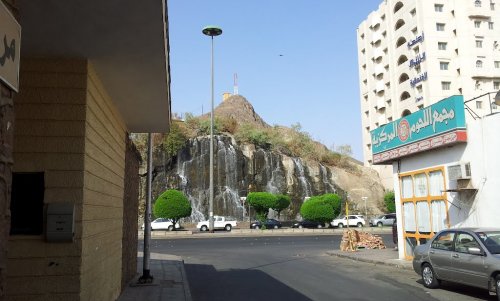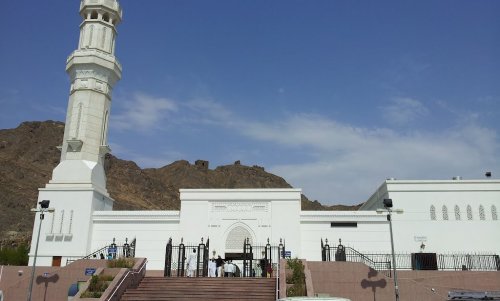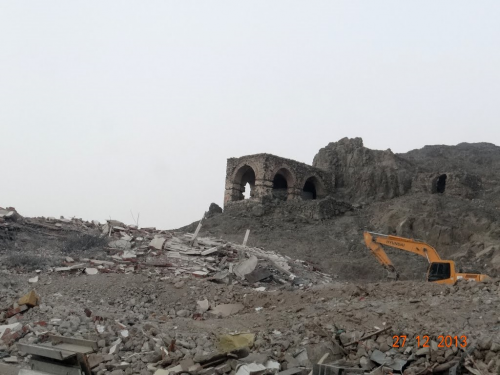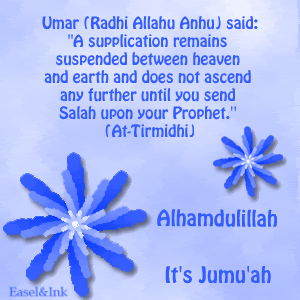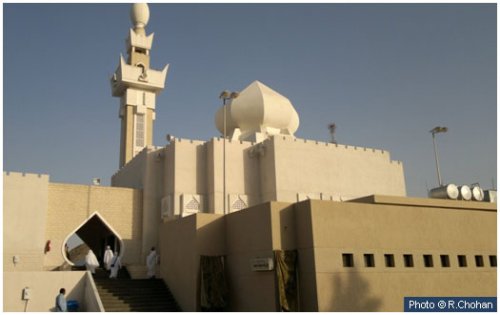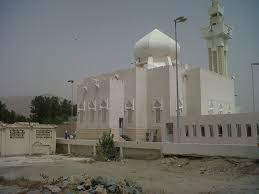-
Posts
8,459 -
Joined
-
Days Won
773
Content Type
Profiles
Forums
Events
Everything posted by ummtaalib
-

Evidence of Performing Missed Prayers
ummtaalib replied to ummtaalib's topic in Hanafi Fiqh (General)
i had posted a long explanation of my own feelings about this...unfortunately it seems to have been lost while the site was down ): will see later when more time -
Please see: Not Fasting Due To Illness
-
wa'alaykumus salaam sis I feel this reply needs more clarification.. found HERE and HERE Main point is that it is not “automatic” that every diabetic person is unable to fast. The person should only miss fasts if there is fear of the diabetes (or any illness) increasing or in the case of diabetes, there is fear of the person suffering a hypo. See below: Regarding illness, the great Hanafi jurist, Imam al-Haskafi (Allah have mercy on him) states in the chapter of “excuses that permit not to fast” in his excellent work Durr al-Mukhtar: “(It is permissible not to fast) for an individual who is ill and fears that his/her illness will increase, or a healthy person who fears that he will become ill due to fasting.” (Radd al-Muhtar ala al-Durr al-Mukhtar, 2/422)
- 1 reply
-
- 1
-

-

Evidence of Performing Missed Prayers
ummtaalib replied to ummtaalib's topic in Hanafi Fiqh (General)
The following Q/A is more of an advice regarding Qadhaa Salaah. Though there are no proofs in this reply by Mufti Ebrahim Desai i felt it is beneficial in this thread inshaAllah. Does qadah salah make up for the obligatory salah?Askimam.org Question Some people say that qadah salah does not really make up for obligatory salah, but you still have to do it? Is this true and to what extent? If qadah does not make up for missed salah, then what is the purpose of qadah? If you make up for all missed salah through qada, will you be saved for making up the salah on the day of judgement e.g. there will be no need to make up for missed salah through your nafil (optional) salah? Or will nafil salah still be needed to make up the obligatory salah? Answer Among the wisdom of performing Salaat, one is that Salaat is an Ibaadat (worship) of thanks giving to Allah Ta’ala for all His favours on us. Factually, if we spend every second of our lives to worship Allah, we will not be able to thank Allah for His infinite bounties upon us. Allah Ta’ala, out of His infinite grace has made it compulsory upon us to perform only 5 times a day. If we cannot even offer this little amount of time then we should hang our heads down in total shame. After enjoying all his bounties and this appreciation. Consider our situation, if we had to do someone a favour and he couldn’t find the time to say, ‘Jazaakallah’ how would we feel? Our Ibaadat does not increase Allah’s honour in any way. Allah Ta’ala is not in need of our Ibaadat. We are the beneficiaries of our Ibaadat. It is true that the Thawaab and virtue of a Salaat performed within its time is much more than the Qadhaa Salaats. However, that is no excuse for not performing Qadhaa Salaat. If a person sincerely repents for not performing Salaats timeously, it is hoped that Allah Ta’ala will accept the Qadhaa Salaat and forgive the sin of not performing the Salaat timeously. This hope obviously will come from one who is sincere in his regret. A true of sincerity is that he will ensure performing all his Salaat timeously. It is also advisable as part of your repentance to offer Nafl Salaat to make up for the shortfall in the Fardh as stated in a Hadith of Rasulullah (Sallallaahu Alayhi Wasallam), the meaning of which is, ‘The first act to be reckoned for on the day of Qiyaamat will be Salaat. If the Salaat is in order then this person is in ruin and destruction. And if there is a shortfall in his Fardh Allah Ta’ala shall say, ‘See if my servant has any Nafl (optional) Ibaadat to his record. Then the shortfall shall be completed with this Nafl, thereafter all other Ibaadat shall be accounted for accordingly.’ (Mishkaat vol.1 pg.117; Qadeemi) and Allah Ta’ala Knows Best Mufti Ebrahim Desai FATWA DEPT. -

Evidence of Performing Missed Prayers
ummtaalib replied to ummtaalib's topic in Hanafi Fiqh (General)
there is also some info here Mufti Abu Hajira says, Re: What is the proof of Kaza Namaz? -

Evidence of Performing Missed Prayers
ummtaalib replied to ummtaalib's topic in Hanafi Fiqh (General)
Found this...inshaAllah it is of help since hadith are quoted. Q. Is there any proof from authentic ahadith of Qada Umari? A."Hazrat Anas ibn Maalik (R.A.) narrates in a hadith of Sahih Bukhari that Rasulullah mentioned: من نسي صلاة فليصل اذا ذكرها لا كفارة لها الا ذلك " Whoever forgets to pray a Salah, it is obligatory upon him that he pray that Salah when he remembers. There is no other way that this can be made up." ( Sahih Bukhari , Kitaabul Mawaaqeet - Hadith 597) The words of Rasulullah in a hadith of Muslim are as follows: اذا رقد احدكم عن الصلاة او غفل عنها فليصل اذا ذكرها فان الله عز و جل يقول اقم الصلاة لذكري " Whenever one of you misses a Salah due to sleeping or due to negligence, it is obligatory upon him that he pray the Salah when he remembers it because Allah (SWT) has metioned, "Perform Salah when you remember me" (Hadith 1569) In a Hadith of Sunan Nas'ai it is mentioned: سئل رسول الله صلى الله عليه و سلم عن الرجل يرقد عن الصلاة او يغفل عنها قال كفارتها ان يصلها اذا ذكرها " Rasulullah was asked regarding a person who misses a Salah due to sleep or negligence. Rasulullah mentioned that its compensation is that he should perform the Salah when he remembers. "(Nasaai p 171) These Ahadith as well as many others are clear that any Salah that has been missed must be performed when one remembers. In fact the ayah of the Qur’an recited by Rasulullah in the hadith of Muslim above, also indicates that this ayah of the Holy Quran refers to qada Salah as well, as it was recited in the context of qada. There is a consensus among the jurists that qada must be made for missed Salahs. And Allah Ta'ala Knows Best al-balagh -

Evidence of Performing Missed Prayers
ummtaalib replied to ummtaalib's topic in Hanafi Fiqh (General)
I understand what you're saying Haya however the problem is I personally do not have knowledge to answer or even to look for relevant hadith on the subject and we do not actually have anyone else knowledgeable either. Therefore i suggest perhaps you can ask at the following site? haithanswers ask a question on hadithanswers I really do apologise but if i can i would get you the answers. I will search and if i find anything i will post here inshaAllah As for: sorry but for a muqallid it does actually apply. Whether you accept it or not does not change it -

Quotable Quotes - Shaykh Yunus Patel (Raheemahullah)
ummtaalib replied to ummtaalib's topic in Inspiring Quotes & Poems
"We talk about the rising of Islam, but we only rise after the rising of the sun" source -

The Accepted Whispers: Munajaat-e-Maqbul
ummtaalib replied to Acacia's topic in Du’as for Various Occasions
Aameen Yaa Rabb! Jazaakillaahu khayran Acacia -
Masjid Bani Haraam It is so called because this area belonged to the Bani Haraam, a clan of the Bani Salima tribe. Arial View Old picture This masjid is near the location of the house of the Companion Jabit ibn 'Abdullah (RA), where food he had prepared to feed the Prophet sallallaahu 'alayhi wasallam and a few companions (RA) during the Battle of the Trench was miraculously increased by teh prophet sallallaahu 'alayhi wasallam to feed the whole army. (From "Memories of the Luminous City") See full story in the attachment taken from here: (Click on picture to enlarge) 1. 2.
-

Quotable Quotes - Shaykh Muhammad Saleem Dhorat
ummtaalib replied to ummtaalib's topic in Inspiring Quotes & Poems
Three things need to be observed before speaking to anyone: the person’s temperament, religious condition and the environment he lives in. Shaykh Mawlānā Muhammad Saleem Dhorat hafizahullāh -
-
-
An Amazing Effect “A righteous sincere intention has the amazing effect of attaining reward, even for a non-existing action; while an insincere intention has the effect of making an existing action non-existent in the sight of Allāh ta’ala. For example, a person makes a sincere intention of donating £1000 to a good cause, but circumstances change and he is unable to do so; he will still get the reward for this non-existent action. On the other hand if a person actually donates £1000 but the intention is for show or any other corrupt motive, then although the action is existent, in the Sight of Allāh ta’ala it shall yield no reward. In other words it is as if, in terms of reward, the action was non-existent.” Courtesy of In Shaykh's Company: a blog maintained by the students of Shaykh Muhammad Saleem Dhorat hafizahullah www.shaykh.org
-

Evidence of Performing Missed Prayers
ummtaalib replied to ummtaalib's topic in Hanafi Fiqh (General)
there are so many ahaadith there...it would take so long to go through all of them! -
جبل سلع Jabal Sila' The remains of the fort on top of Jabal Sil’a,(Al-Miskeenah) Closeup picture taken from here The remains of the fort on top of Jabal Sal’a, which in contrast to Jabal Uhud, is predominantly of volcanic rocks, hence the dark grey stone work. This view is from Masaajid Sab’e, the Seven Mosques, where the Prophet SallAllahu alaihi wasallam and the Sahabah RadhiAllahu anhum stood guard during the Battle of the Trench. Jabal Sila' near to Masjid-e-Raayah Site of Sab'ah Masaajid, Jabal Sila' in background
-
Question and Answer: Q. Can we sell material that will be used to make church clothing? We sell these plain white sheets that are multipurpose but some people buy it and make church clothes from it. (Query published as received) A. The Fuqahaa have mentioned that items that have dual purposes (permissible and impermissible) are permissible to sell and the seller is not responsible for the misuse of the purchaser. For example, grapes have a dual purpose. A person may purchase grapes to eat it or may purchase it to press and make wine. It is permissible to sell the grapes and the seller will not be responsible for the misuse of the purchaser. Likewise, it is permissible to sell such material in question as it has multiple purposes. The seller will not be sinful if the purchaser uses the material to make clothing for the church. And Allah Knows Best Mufti Suhail Tarmahomed Fatwa Department Jamiatul Ulama (KZN) Council of Muslim Theologians
-
I was pondering over a famous Dua (supplication) that the Prophet Muhammad (Peace be upon him) used to say at times of anxiety or sorrow, and I realised how wonderful this dua is for Productive Muslims everywhere. The dua is: اللَّهُمَّ إِنِّي أَعُوذُ بِكَ مِنْ الْهَمِّ وَالْحُزْنِ وَالْعَجْزِ وَالْكَسَلِ وَالْبُخْلِ وَالْجُبْنِ وَضَلَعِ الدَّيْنِ وَغَلَبَةِ الرِّجَالِ ‘O Allaah, I take refuge in You from anxiety and sorrow, weakness and laziness, miserliness and cowardice, the burden of debts and from being over powered by men.’ If we look at all the six elements that the Dua above is asking Allah for refuge from, we would realise that all of them are anti-Productivity elements that if removed from our lives we can move forward much quicker and be more productive. Anxiety & Sorrow: When you’re sad, bothered, or anxious about something, you cannot be productive as your mind is taken over by what’s bothering you. Your thought process is not devoted to anything else except how to get rid of your anxiety or sorrow. Sometimes these anxieties are small, sometimes they are big, but however big/small they are, the moment these anxieties take over your life and blur your thoughts, then you need to make this dua. Weakness & Laziness: Weakness is when you cannot do something, and laziness is when you do NOT want to do something. And the two are inter-linked. Most people who are lazy, end up being weak. Because what started off as something you do not want to do, soon becomes something you cannot do and you end up convincing yourself that you cannot ever do. Again, both these illnesses are elements which you need to ask Allah for help in removing because they are detriment to your quality of life. Imagine not being able to achieve or do anything because you are weak or lazy, how pathetic is that for a Muslim? And as in the famous hadeeth: “Seek help from Allah and do not be weak!” That’s the formula, don’t get yourself to the level of “I cannot do it” but seek help from Allah and anything is possible! Miserliness & Cowardice: Productivity requires you to spend, not only money, but money, time, and effort. And spending needs courage, because the miserly are usually cowards who fear poverty or fear lack of resources, but the person with courage moves forward fearing nothing but Allah. The Burden of Debt & Being Overpowered by Men: There’s nothing more enslaving than the burden of debt, and that’s why there’s a number of dua that Prophet Muhammad taught his followers to remove such social slavery from his people, including one of my favourite duas: ‘O Allaah, make what is lawful enough for me, as opposed to what is unlawful, and spare me by Your grace, of need of others.’ Moreover, debt can also lead you to being overpowered of men described in the dua, which mainly happens when you owe other people something. Such a beautiful dua should always be in our prayers and prostrations, as we’re not free from all the elements at any one time. Moreover, if you want to know the cause of the above six diseases, the answer is our sins. Nothing else brings about sadness, anxiety, miserliness, cowardice, weakness, laziness and debt except for our sins, so we need to stay guard by firstly reducing our sins and secondly making the above dua abundantly, always. productive muslim
-
-
-
Masjid Jirranah Masjid Jirranah is situated approximately 24km north-east of Masjid Haram and is one of the places where pilgrims enter into the state of Ihram for the performance of Umrah. In the year 8AH the Prophet (sallallahu alaihi wa sallam) camped here for a few days after the Battle of Hunayn and entered into the state of Ihram and then proceeded to Makkah. islamiclandmarks
-
-
Are all shia Kafir? If not what makes them kafir or how can i identify if he is kafir. Askimam.org I recently found out my friend is a shia he proposed to my wifes cousin and told her family that he has imamat and he is a shia my wifes cousin is sunni .Since then i decided not to be friends with him i dont talk to him. he and my wifes cousin is not allowed to come to my house and his 1st wife is also not allowed . ive read alot about shia and its alwasy said to 1st find out if they are kafir. 1)Is all shia Kafir .If not what makes them kafir or how can i identify if he is kafir. 2)by cutting myself off from him and not allowing him to enter my home am i commiting a sin . 3) Someone told me that shias is muslims is this true Answer In the name of Allah, Most Gracious, Most Merciful Assalaamu `alaykum waRahmatullahi Wabarakatoh Firstly, hereunder are the criteria for declaring someone a non-Muslim: When a person openly calls himself a non-Muslim, i.e. he accepts that he is a Christian, Jew, Hindu, etc. When a person negates, through his words or actions, something unanimously proven through Quran and Hadith. He will not be regarded a Muslim even though he claims to be one. Jawahirul Fiqh Vol:1 Pg:23 (Maktabah Darul Uloom Karachi) Secondly, although the Shias claim that they are Muslims, most of them have beliefs that negate the clear cut principles of Islam. Some of these beliefs are listed below: 1. They regard the Quran to be incomplete, and say that most of the Quran has been changed. 2. They regard most of the senior Sahabah (Radiyallahu Anhum), including the first three Khalifas, as murtads (those who have left the fold of Islam). 3. They regard the status of their twelve Imams to be higher than the status of the Ambiya (Alaihim Assalaatu Wassalaam). Aaapke Masaail aur Unka Hal Vol:1 Pg:188 (Maktabah Bayyinat) Thereafter, Shias are categorised into three groups in regards to the ruling they fall under: 1. Those about whom it is certain that they negate the principles of Islam. Such Shias will be regarded as non-Muslims even if they do claim otherwise. Shias have the habit of taqiyyah (i.e. they regard it virtuous to lie in order to safeguard their beliefs); therefore, their word will not be accepted, if reliable sources prove otherwise. It is not permissible to have inter-marriages with such Shias, Janazah Salaah will not be performed upon their deceased, the meat from the animals slaughtered by them will not be halaal and all other laws confined to Muslims will not apply to them. 2. Those who do not negate any principles of Islam, but have a difference of opinion with the Muslims on saying that Ali (Radiyallahu Anhu) was the most superior amongst all the Sahabah (Radiyallahu Anhum). Such Shias will not be regarded as non-Muslims, but they will still be regarded as fasiqs (those who transgress the laws of Islam openly). The laws confined to Muslims will apply on them, but it will not be advisable to have inter-marriages with them. 3. Those whose beliefs cannot be confirmed. They will not be regarded as Muslims nor will they be regarded as non-Muslims. As a matter of precaution, inter-marriages with them will not be permissible and the meat from the animals slaughtered by them will not be halaal. Jawaahirul Fiqh Vol:1 Pg:59-63 (Maktabah Darul Uloom Karachi) As far as ties with Shias are concerned, it is not permissible to have close friendship with them. However, Islam encourages Muslims to have good conduct with them, and show good character. And Allah knows best Wassalam Ml. M. Jawed Iqbal, Student Darul Iftaa Checked and Approved by: Mufti Ebrahim Desai Darul Iftaa, Madrassah In’aamiyyah
-
Are Shias Kaafir? Answer: All Shias are not non Muslim. In fact only those Shias are non Muslim who adhere to the following belief; that Hazrat Ali [RA] is Allah, or that Hazrat Jibreel brought the divine revelation “Wahi” to Nabi Muhammad [sAW] through error, and that the revelation was in fact supposed to go to Hazrat Ali [RA], that the Qur’an is incomplete, that alterations were carried out on the present Qur’an, that the false accusation against Hazrat Aisha [RA] is true, or that Hazrat Abubakr [RA] was not a Sahabi. Thus any Shia holding any of the above beliefs is not a Muslim nor will it be permissible to treat him as a Muslim. Those Shias who do not hold the above mentioned erroneous beliefs but use inappropriate language against the Sahaabah [RA], and show disrespect and undermine the status of Hazrat Abubakr, Umar and Uthmaan [RA] will not be non Muslims according the opinion of the Experienced Ulama though they are in stark misguidance and out of the creed of Ahlus Sunnah Wal Jamaat. Thus having personal or close relationships with them will not be permissible. [Ad-Durrul Mukhtaar, Fataawaa Darul Uloom Deoband] P.S. We would like to apologise for the delay in answering your question as our phone lines were down for quite a while. Please accept our apologies. And Allah Taala knows best Mufti Muhammad Ashraf Darul Iftaa Jameah Mahmoodiyah Springs www.mahmoodiyah.org.za [email protected]

